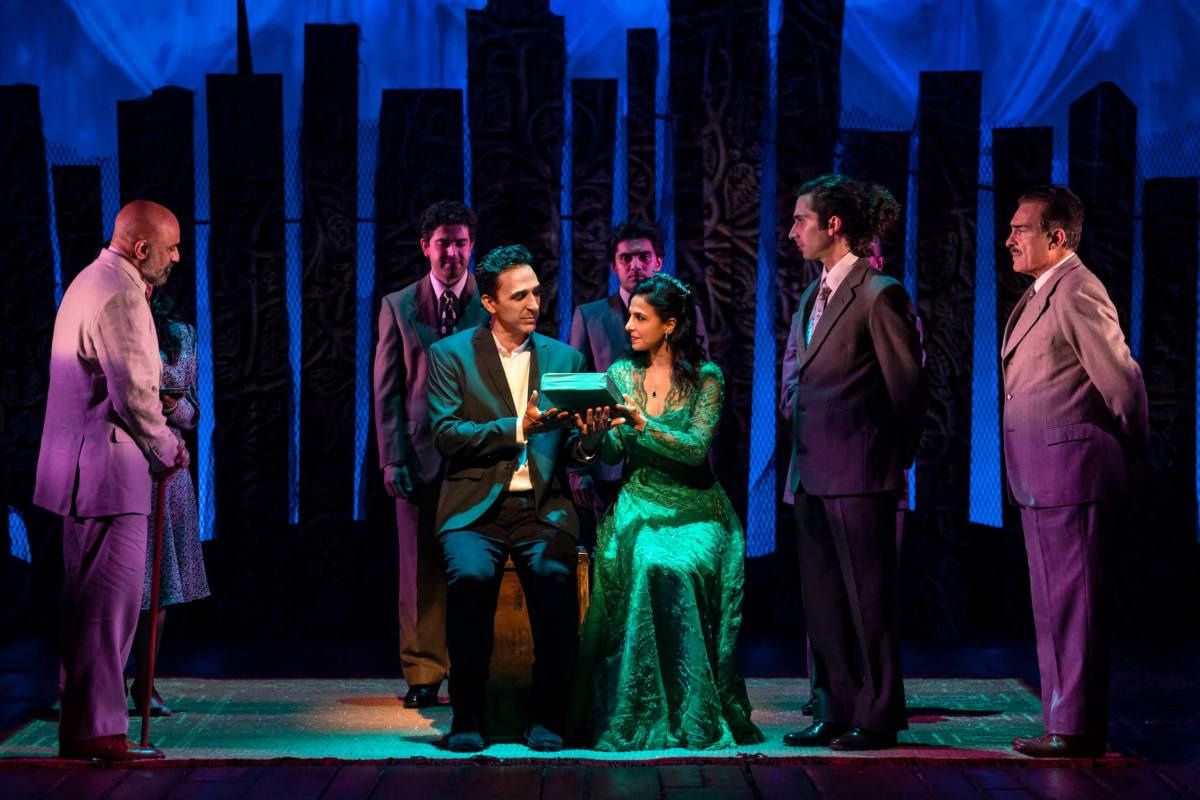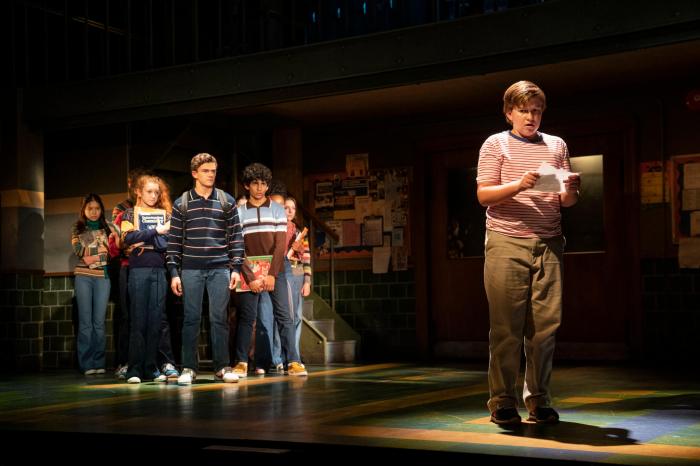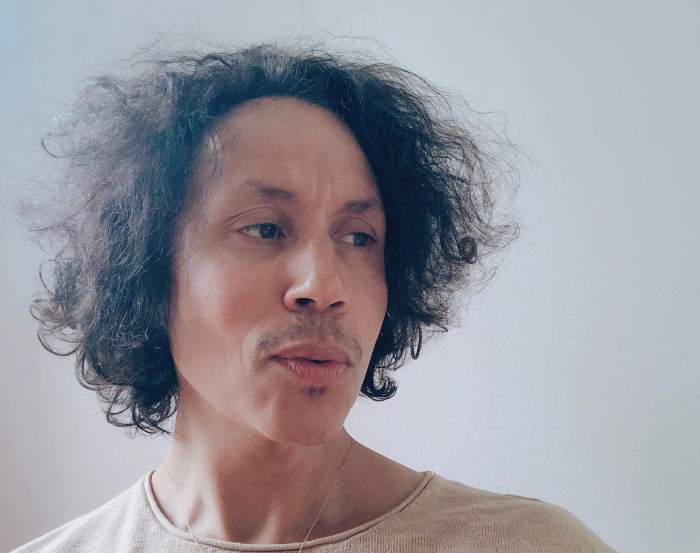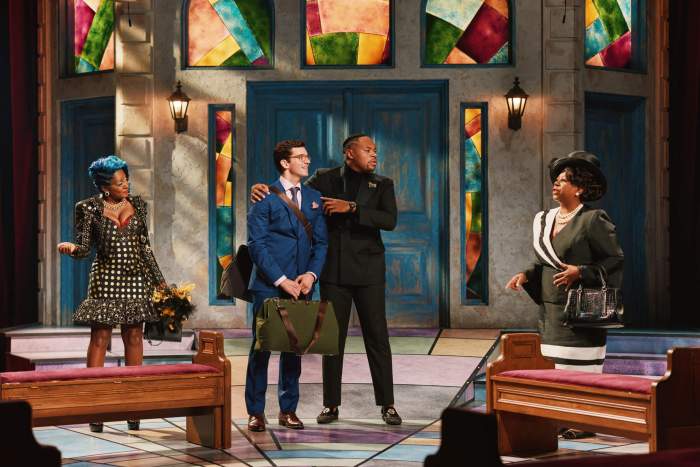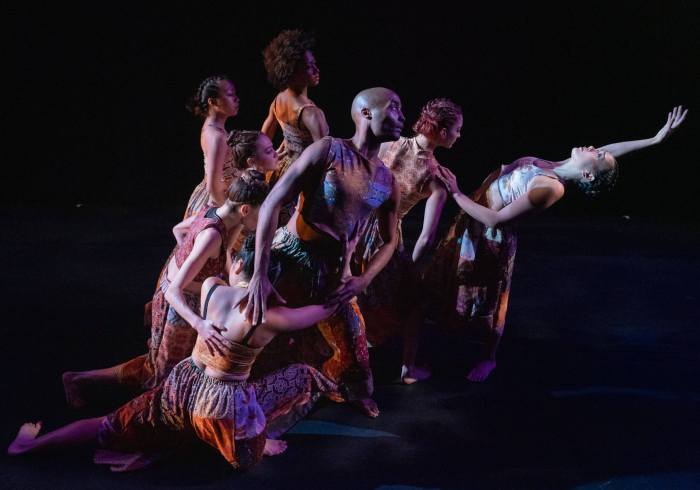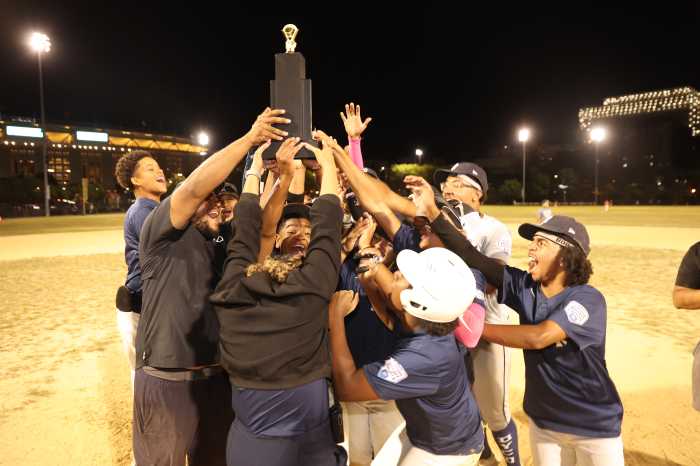Guilt is at the center of “The Kite Runner,” a theatrical adaptation of the 2003 novel by Khaled Hosseini and the 2007 movie. The guilt is borne by the central character, Amir, who allows his best friend Hassan to be raped by a gang of male bullies, escapes a tumultuous Afghanistan overtaken by the Taliban, and builds a solidly middle-class life in America. That friend, Hassan, son of his father’s servant, whom he abandoned as a child, is unable to escape, and is murdered by the Taliban, leaving an orphaned son. Amir would just as soon leave all of that in the past, but an old friend shames Amir into returning to Afghanistan to seek redemption.
The title comes from a game Amir and Hassan play when they are young. In Kabul as 12-year-olds, they compete with kites flying on strings covered with glass to cut the strings of other kites flying. The last kite in the air wins, and the “Kite Runner” chases the losing kite to claim it as a prize. In the year Amir wins the competition, Hassan, who is known for being a great kite runner, claims it for Amir, only to be attacked by the bullies who have made his life miserable because he is Hazara (a targeted minority group) rather than Pashtun, the dominant ethnic group.
The adaptation by Matthew Spangler is not so much a play as a narrated group of scenes. The structure makes it difficult to find a consistent emotional engagement, particularly when Amir mostly seems to be excusing his cowardice. There is a theme that runs throughout of what it means to be a man, and Amir fails consistently, nor does he find a new definition as a reluctant hero. He only takes action when his guilt overwhelms him. That may be necessary because this is a tale of survival, but at what cost? There is no way Amir can redeem himself from effectively sentencing Hassan and his father to death through a false accusation of theft Hassan doesn’t challenge out of love for Amir. When Hassan and his father leave the protection of Amir’s home, they are vulnerable when the Taliban takes over. Amir may selfishly believe he can redeem himself by adopting Hassan’s son, but his efforts are more cringe-inducing than noble.
Given its structure, the production is predominantly static. As directed by Giles Croft, it’s played on a mostly bare stage with sets designed by Barney George with ramps and huge fabric shapes that descend from the flies for no apparent reason — except to hide the actual rape of Hassan. All the color and movement comes from excellent projections by William Simpson, which convey place but are discordantly lyrical given the subject matter as if to tamp down on the emotional violence of the story.
As Amir, Amir Arison is both narrator and has to play Amir at different ages. He is often either wooden or false, and the way the play is written, it’s only possible to be sympathetic to Amir at the end of the play. He’s still weak and unlikable, and perhaps delusional in forgiving himself, but Arison does ultimately make us feel something for the character. Eric Sirakian fares better as Hassan and later his son Sohrab. He’s a charming actor, but he skates on that charm without giving the character any depth. Farin Tahir as Baba, Amir’s father, surprisingly, is the most developed character, going from rich man to refugee, and he plays it with heart and nuance. The piece is underscored by the music of the tabla, drums from the region, played by Salar Nader, which does add dimension and variety to the scenes.
If the story is about dealing with guilt, this play is about pandering to an audience. If we relate to or accept Amir’s journey, the question remains whether it is too easy to let ourselves off the hook for our terrible actions. Can we ever recover? And if so, how does this change us? There are no easy answers, but that’s what would make a gripping play, but those are questions “The Kite Runner” largely sails past.
The Kite Runner | The Helen Hayes Theater | 240 West 44th Street | Weds, Fri, Sat 8 p.m.; Mon, Weds 7 p.m.; Weds, Sat 2 p.m.; Sun 3 p.m. | $69-$199 | Telecharge.com or 212-239-6200 | 2 hours 30 mins. 1 intermission

